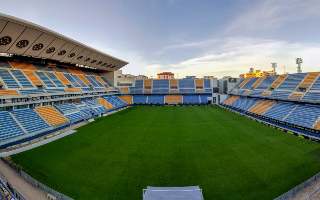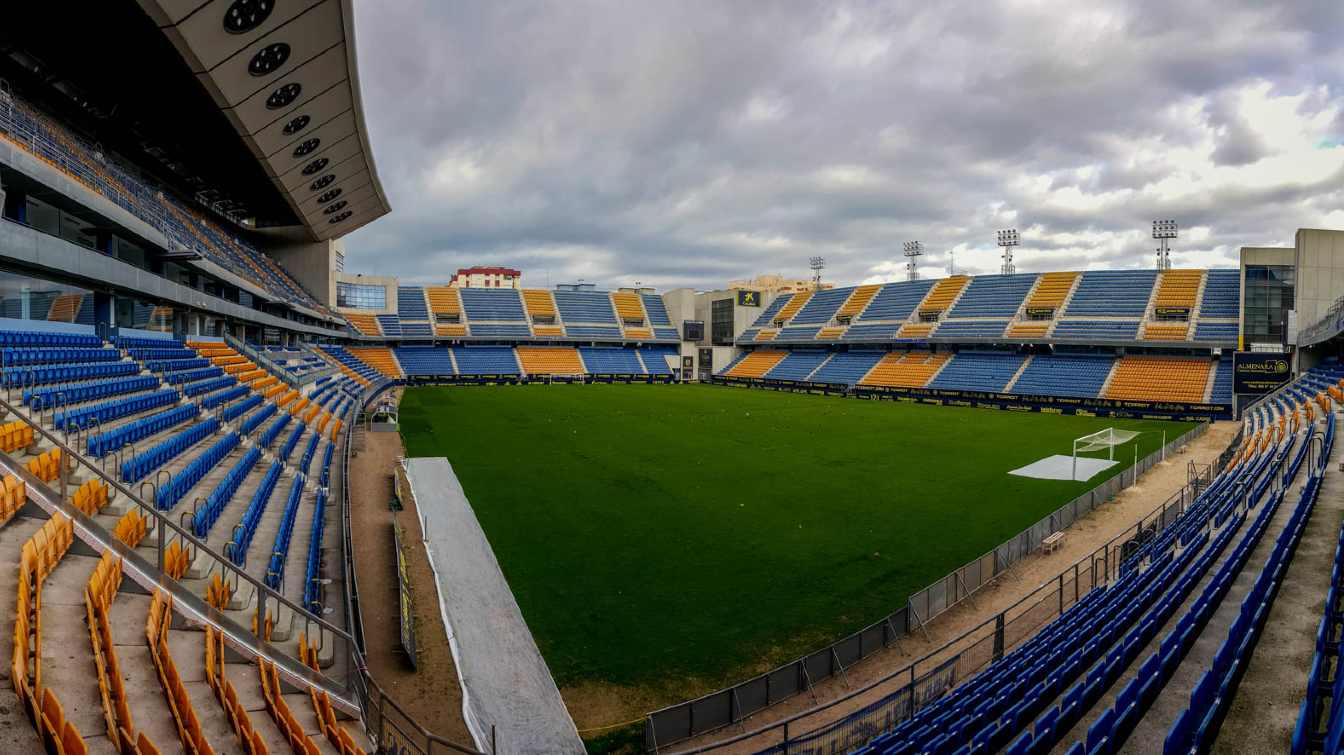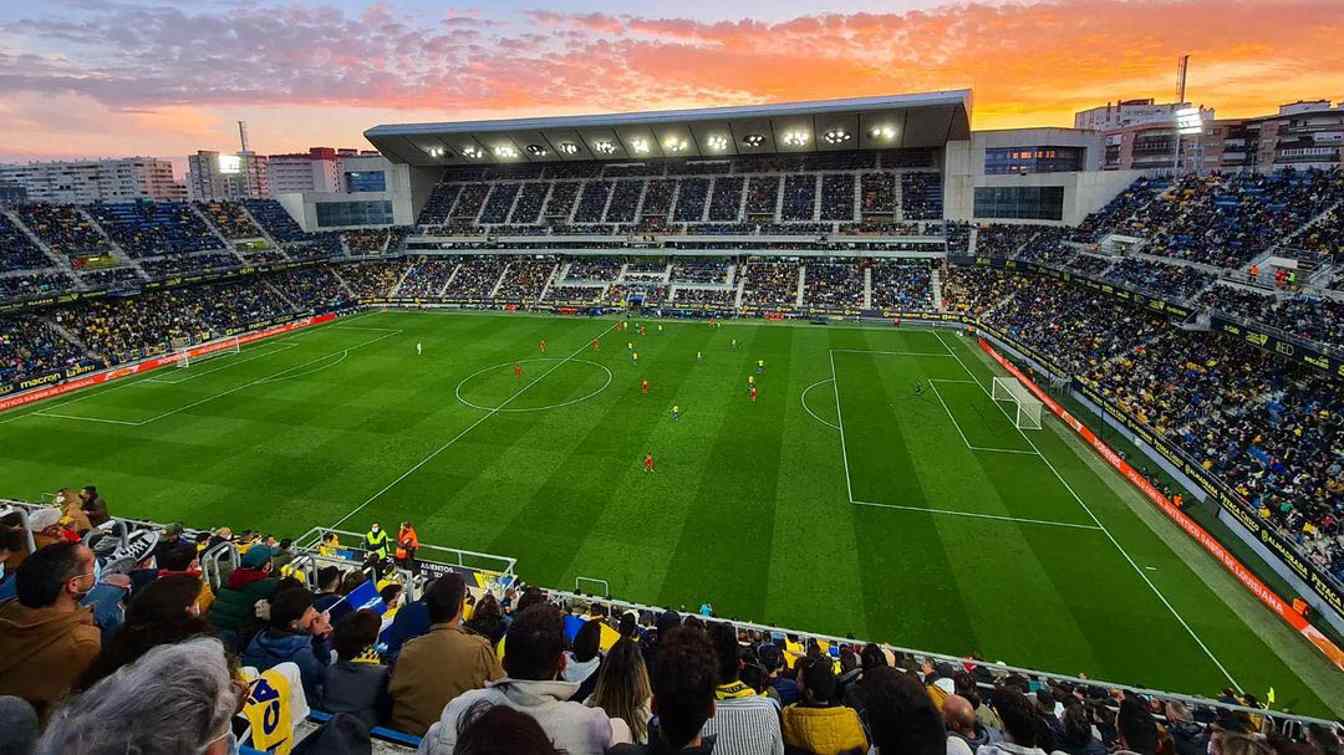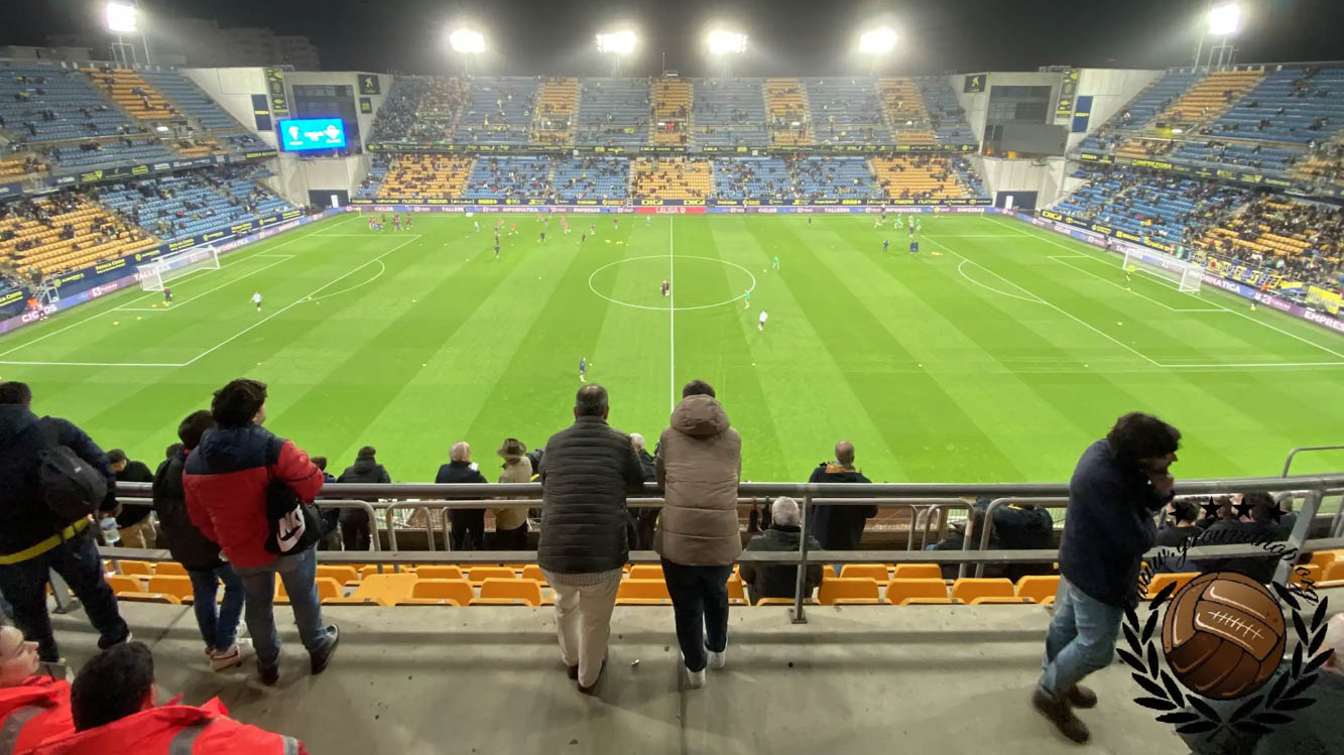Spain: Cádiz stadium name dispute to be settled soon?
source: StadiumDB.com; author: Jakub Ducki
 Municipal group Adelante Izquierda Gaditana has announced a fight to keep the current name of the Nuevo Mirandilla stadium, stressing that the reintroduction of the Carranza name would be a violation of the Democratic Memory Law and an insult to the victims of Francoism.
Municipal group Adelante Izquierda Gaditana has announced a fight to keep the current name of the Nuevo Mirandilla stadium, stressing that the reintroduction of the Carranza name would be a violation of the Democratic Memory Law and an insult to the victims of Francoism.
Advertisement
History of renaming of Cadiz stadium
In 2021, the Cadiz authorities, in accordance with the spirit of the Law of Democratic Memory, decided to change the name of the stadium of the Cádiz CF football club from Estadio Ramón de Carranza to Nuevo Mirandilla. The decision was motivated by the need to disassociate themselves from the city's Francoist past and honour the victims of the repression that took place during the dictatorship.
The name change, although supported by many quarters, has also provoked a wave of opposition. In recent months, there has been an intensification of efforts to restore the stadium's former name. In August, there was a proposal for a revised commercial name, which was met with government intervention. The group Adelante Izquierda Gaditana and the civic platform Carranza Incumple
also announced an immediate response.
Adelante Izquierda Gaditana in defence of democratic values
Adelante Izquierda Gaditana, a left-wing municipal group in Cadiz, has announced that it will present a motion at the September plenary session of the City Council opposing the restoration of the name Carranza
to the stadium. The group's spokesman, David de la Cruz, and councillor Lorena Garrón, took up the cause after meeting with representatives of the Carranza Incumple
platform, who are actively working to retain the stadium's current name.
Members of the Carranza Incumple
platform presented at the meeting their activities that they have been undertaking since the announcement of the stadium's name change. These activities include collecting documentation, stories and statements from victims of repression, which are then published on the website carranzaincumple.com. In this way, they want to remind the people of Cadiz why it is so important that the stadium should not revert to its former name, which is clearly associated with the Franco dictatorship period.
 © Fabián Bravo Guerrero (Kato)
© Fabián Bravo Guerrero (Kato)
Making people aware of Franco regime
The Carranza Incumple
platform does not limit its activities to just collecting documentation and publications on the internet. Activists also seek to educate the people of Cadiz about the history of the city and the tragic fate of the victims of Francoism. They organise information campaigns on social media and various platforms to reach the widest possible audience.
Representatives of the platform point out that the reintroduction of the Carranza name would not only be a blatant violation of the Law of Democratic Memory, but also a sign of disrespect for the victims of repression and their families. They give specific examples, such as the story of Adolfo Trinidad Titi,
a footballer who fell victim to the repression of the Franco regime, to highlight the importance of preserving the memory of those who suffered during those times.
Democracy and justice as foundation for action
David de la Cruz of Adelante Izquierda Gaditana emphasises that the work being done by the Carranza Incumple
platform is invaluable. He points out that these actions are not aimed at political revanchism, but are part of a democratic process that aims to heal the wounds left by years of dictatorship. Carranza Incumple is doing a very important job of disseminating the figure of Ramón de Carranza and providing information on the importance of compliance, which is an exercise in democratic healing, a healing of wounds in which we can all take part
- emphasises the spokesperson.
Adelante Izquierda Gaditana announces that during this session she will firmly defend democratic values and work to ensure that the stadium does not return to its former name. We will take up this work at the municipal plenary session in September to seek truth, justice and promote reparations for these victims of repression
concludes David de la Cruz.
Advertisement
 StadiumDB
StadiumDB
